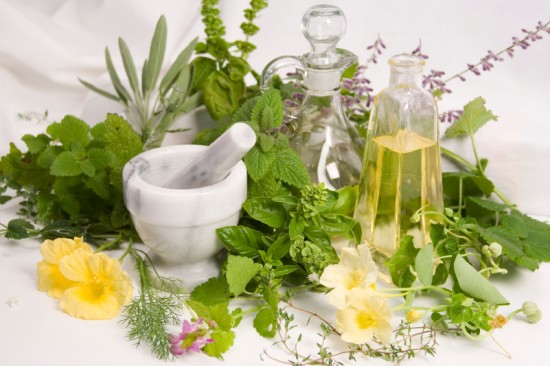
I went to see a naturopath in January.
I’m a hypochondriac and, naturally, a skeptic, which I assumed made me a terrible candidate for holistic medicine. Hypochondria can cause one to have a tense relationship [at best] with one’s medical providers, be they physicians, technicians, nurses, dentists, hairdressers… what have you. I trust them about as far as I can throw them. Is this always true? Obviously not, it’s just my experience, and also something I read on Wikipedia one time.
I’ve also had my share of diet-related health issues. I’m not going to sit here and say that not eating animal products makes you more likely to have dietary health concerns. I’m just saying that, just like many other people who do and do not eat meat, I’ve had symptomatic deficiencies of certain vitamins and minerals. Because it’s really hard to eat all the things we’re supposed to eat, as humans. We have other things to do. [Stay tuned for some chatter about vegan health though, because I am planning a slew of posts which I hope will be helpful to people like me who are trying to figure it all out]
Anyway, I saw my doctor [kicking and screaming] about my immediate concerns (i.e. numbness, chronic fatigue, and chronic headache), and he had me do bloodwork and a CT scan to make sure everything was all right. The answer: Basically, it was. I was vitamin D deficient, but that’s usually asymptomatic – and everyone in Canada is vitamin D deficient anyway.
But I still felt like garbage, so I resigned myself to alternative medicine. So here’s how that went.
Naturopaths Love Supplements
Unless you’re not completely obsessed with reading medical junk on Yahoo Answers, you have probably heard differing opinions on supplements. Some say they do nothing. Some say they do everything. Some say you should always take a multi. Some say you should only take supplements on the advice of a medical professional.
When it comes down to it, though, my naturopath was great about supplements. And here’s my reasoning for saying that: Everything she suggested was completely in line with what my Doctor had suggested, what peer-reviewed studies had suggested, and what random people on the internet had suggested. But here’s the major difference. When I got bloodwork done, I got a call from a nurse at my doctor’s office, who told me to take 300 IU of Vitamin D daily for 6 months. End call.
When I brought those results to the naturopath, she read through them beside me, pointed out the things that interested her, and told me what levels she’d like to see them at. She cross-referenced my list of symptoms, my bloodwork results, my current diet, and my current supplement intake. She created that whole picture that is important to holistic medicine, and I felt like I left with an actual understanding of what was going on, instead of just a prescription.
I was dreading being told to take a cocktail of weird things I’d never heard of, but instead what I got was a pretty reasonable plan: B-complex and calcium magnesium for short-term use, vitamin D and B12 for long-term use. Completely, unnervingly sane, and in keeping with everything I know about veganism. So, yes!
Also, I already had most of those things because I’d read about them on the almighty internet.

Naturopathy is Sustainable
If you’re a script-happy person who takes antibiotics for everything… (1) You’re making the world a worse place. (2) This section won’t interest you. [I apologize. I take that back. But seriously, stop creating super viruses. Okay, sorry.]
My doctor, who I say un-sarcastically was a gentle and wonderful person, still tried to get me to take all kinds of prescription medication that I didn’t want. Everything I had, he had a pill for. As a general rule, I believe that since I’m a young, healthy person with a varied diet and no chronic conditions, I should be able to survive without being on multiple types of prescription medications at all times. Not so, apparently. [This is very, very deeply important to me for some reason, don’t mind me.]
Naturopathy is more sustainable, as I see it. It’s not about fixing a symptom, it’s about creating long-term health. And as a patient, you can be more involved in the discussion. You and your naturopath can work together to create a diet plan – and supplement it if needed – that will maintain your overall health and meet whatever personal goals you have. Doctors are great – I’m not trying to put doctors down, we all need them very badly – but there are some things, like what brand of nut butter you should be eating, that are kind of… below the M.D. pay grade. You see what I mean?
As an example, take chronic headaches. I would go 2 weeks with a headache every day, and the only thing that gave me any relief was 400 mg of ibuprofen – and even that only lasted 4 hours. I don’t love taking ibuprofen in those quantities, but my doctor said – if it works, keep taking it. My naturopath, after looking at my diet, had a different take – she thought I should probably not be eating wheat, or Kraft peanut butter. [PSA: Kraft peanut butter has so much sugar that you might as well be eating candy. Or spoonfuls of sugar. It’s seriously that bad. Heartbreaking.]
I rolled my eyes, inwardly. But the next time the headache hit [suspiciously, the morning after I’d eaten white pasta], it seemed less obtrusive. Maybe because I was nauseous and didn’t want wheat anyway. But I resigned myself to following orders, for a bit, and… the headaches faded away.
Which sucks, because now I have to cut back on gluten, and gluten is my favourite food group. But at least I don’t feel like I’m dying all the time.
Homeopathic Medicine is a Thing
Can you tell by that un-debatable title that I am trying really hard to be gentle? No?
I’m not going to go all “IFL SCIENCE YOU’RE ALL BRAINWASHED” on you.
I’m just saying… there’s no scientific evidence that homeopathic remedies work. If I’m wrong, send it to me because that would be very exciting to me.
Wait, what is homeopathy? The British Homeopathic Association describes it as such:
Homeopathy is a form of holistic medicine used by over 200 million people worldwide to treat both acute and chronic conditions. It is based on the principle of ‘like cures like’ – in other words, a substance taken in small amounts will cure the same symptoms it causes if it was taken in large amounts.
Homeopathic medicines are manufactured using a process combining serial dilution and succussion (vigorous shaking).
The dilution process actually removes all traces of the original substance, but practitioners say that the remedy retains a memory of that substance. Others attribute any success by these remedies to the placebo effect.
Maybe it works. Maybe it doesn’t. But some naturopaths do recommend it. If it’s not your thing, you should be aware of that going in. Between all the valuable diet advice and supplement advice I got, the additional recommendations of holistic remedies didn’t bug me. I’m willing to try anything, really, as long as it has no side effects. But if you’re not into it, then that’s a discussion you should have – respectfully – before carrying on with the relationship with your practitioner.


